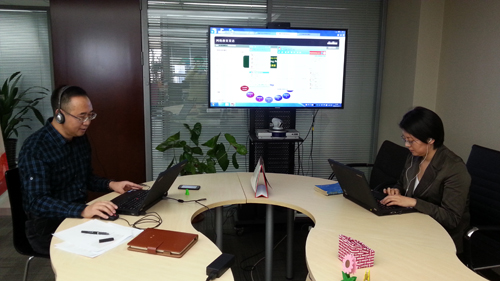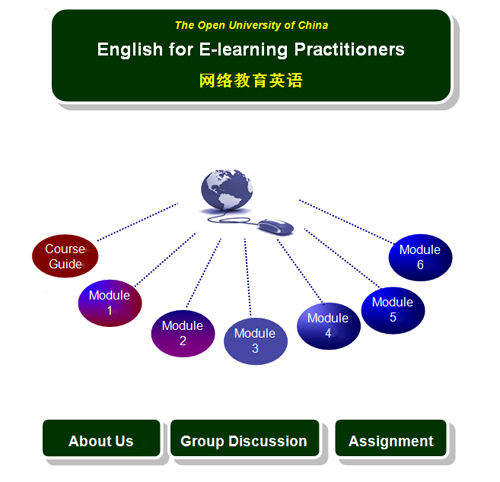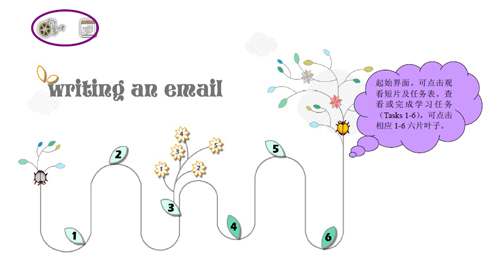 In line with the self-development needs for e-learning of employees in China and the future development trends of e-learning, “E-learning Practitioner Training” has seen the successive launch of several new courses in recent years. Among these, “English for E-learning Practitioners”, has completed all its course resources. The first class was officially held on 9th December, 2013. This course which is limited to 20 people, is presided over by Professor Niu Jian, the course leader, and brought together many practicing English teachers in the OUC and local Radio and TV Universities (RTVUs) in order to provide a teaching resources service and learner support.
In line with the self-development needs for e-learning of employees in China and the future development trends of e-learning, “E-learning Practitioner Training” has seen the successive launch of several new courses in recent years. Among these, “English for E-learning Practitioners”, has completed all its course resources. The first class was officially held on 9th December, 2013. This course which is limited to 20 people, is presided over by Professor Niu Jian, the course leader, and brought together many practicing English teachers in the OUC and local Radio and TV Universities (RTVUs) in order to provide a teaching resources service and learner support.
Using the voice function of QQ, a Chinese chatroom software, course tutors Niu Jian and Hou Songyan interact with learners in real time.
“English for E-learning Practitioners”, abbreviated as EEP, is a professional English course, targeting e-learning practitioners, including teachers, educational administrators, researchers and technicians, etc. Through this foundation course, learners will be able to grasp the common, specialized vocabulary of e-learning, will be able to read general academic documents related to e-learning, will be able to carry out simple communication with international counterparts on the subject of e-learning in daily work, especially will be able to use electronic means , such as e-mail, QQ, and Facebook for general written communication; will be able to give academic reports and interact in international conferences; will be able to raise appropriate questions and give responses; and will be able to write English academic papers of a normal standard.
This course is only available online, which means all of its teaching and learning will be done online in several different forms, including multimedia courseware, PPT, the written word, etc. The teaching content is produced in modules and consists of 7 parts, including a course guide and 6 modules. The learning will last for 7 weeks with 10 study periods each week, making a total of 70 study periods .

The course structure of “English for E-learning Practitioners”
In order to provide more opportunities for learners to practice oral English, real-time voice interaction in QQ groups was added to the teaching process. In this way, not only was real-time interaction first introduced to an online course, but any learner feelings of strangeness towards on-line learning was reduced by introducing QQ, a social software that people are familiar with.

A screenshot of multimedia courseware
Through four years’ development, the “E-learning Practitioner Training” project has trained more than 1500 people. It is gaining more and more attention in commercial circles and gradually becoming one of the most important training platforms for e-learning (distance education) practitioners. At present, there are 9 courses in the “E-learning Practitioner” training project, including “Learner Support”, “Tutoring Online”, “Online Course Design”, “The Application of New Technology in Education”, “Online Learning Tools”, “English for E-learning Practitioners ”, “Web Search”, “E-learning Technology”, “E-learning Management”, etc.
For more information, please visit the website http://etutor.crtvu.cn/ or call 010-57519252.
By Mu Xingyan, the OUC